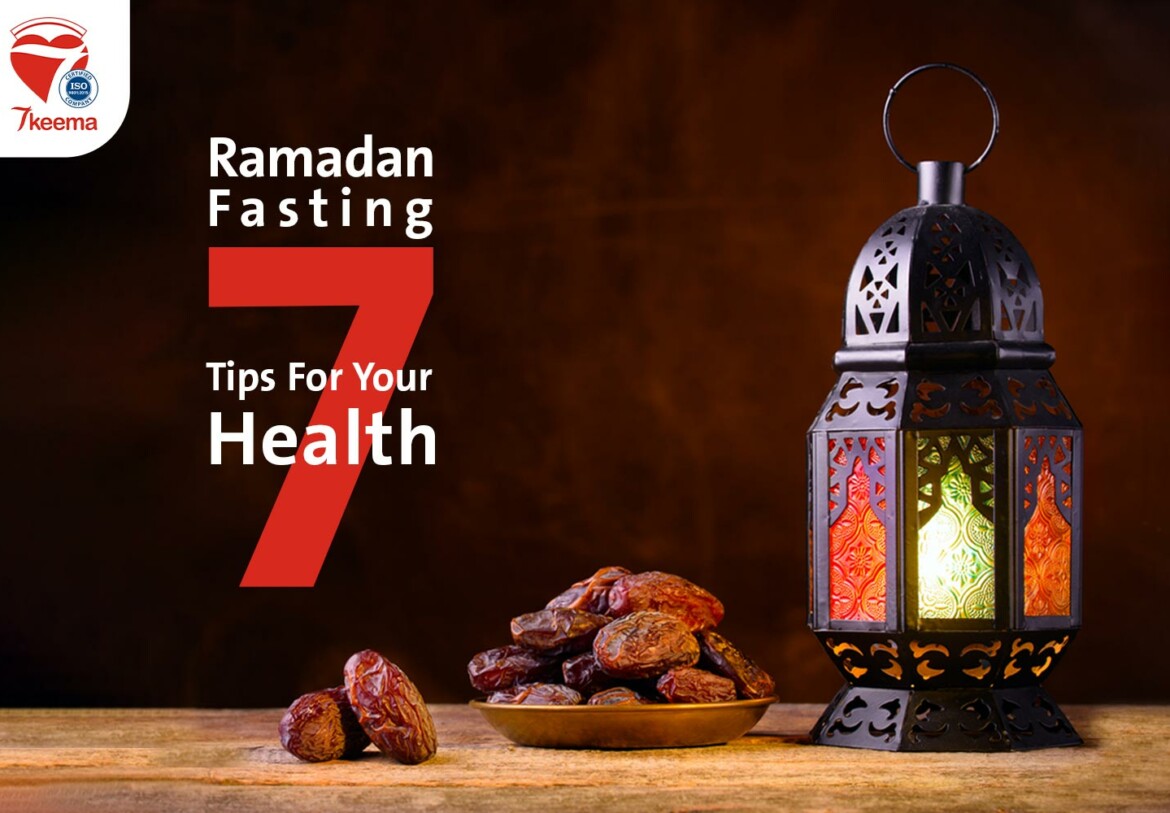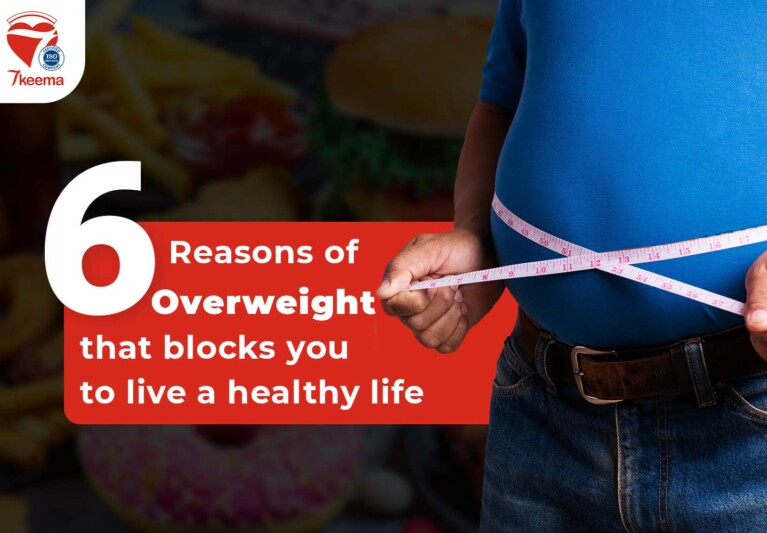Ramadan is coming all over the way, which arouses great pleasure and joy in our homes and families. Not to mention how Ramadan gets us closer to each other and gives us the opportunity to have some family quality time around the iftar table. In the aftermath of some long fasting hours, people would rush into eating their iftar meal without concerning any health precautions.
In fact, Ramadan fasting doesn’t mean an unhealthy lifestyle, nor gaining or excessively losing weight. In contrast, Ramadan gives us a huge chance to have a healthy lifestyle, and it’s a chance to stick to a diet for such a time and observe results as far as it goes.
In fact, during fasting hours in Ramadan, the body can act in the highest level of energy and power by just following a few tips throughout the day. As well, you can get enough amount of nutritional elements you need daily during the time between iftar and suhoor.
Alternatively, workouts and sports, in general, are not impossible to practice during Ramadan. It’s an inaccurate concept that leads many people to quit their workout routine during the holy month. However, practicing any kind of sport or workout is mandatory throughout the year, and Ramadan is no different. Knowing that having a workout routine during Ramadan can help energize your fasting and keep you with enough energy to go thru your day.
Moreover, fasting hours during Ramadan can help out people to quit many unhealthy habits, such as smoking, eating a lot of junk food, consuming a huge amount of soft drinks, and many more acts you used to be addicted to and negatively impact your health.
Therefore, we’ll spread out this article precisely to discuss all Ramadan fasting, how it could be full of energy, how to use it positively in our health favor, and many other tips concerning fasting for the elderly, diabetics, and high blood pressure patients.
1- Water & Fluids Between Iftar & Suhoor:
Providing the necessary amount of water during Ramadan could be challenging yet essential. For instance, water keeps the body in an active state, prevents many diseases, and is mandatory for healthy blood circulation.
Normally, during Ramadan fasting hours, body fluids amounts decrease all over the day, and preventing from reaching some critical levels is necessary. It becomes more likely to lose more amounts of water if it’s hot weather or exerts much physical effort or whatever reason. Accordingly, these amounts should be compensated during the time between iftar and suhoor.
Basically, it’s better to drink around 10 full cups of water; the more, the better. As well, some amounts of water could be reached through many food elements, especially vegetables and fruits, between which we can mention lettuce, cucumber, and much green salad known vegetables, and it’s recommended to have dessert by eating some fruits rich in water, such as watermelon.
Moreover, during Ramadan, it’s preferable to avoid high caffeine drinks that absorb many fluids from the body’s needs, as well as it’s recommended to avoid them all over the year or at least limit the caffeine intake for your health—knowing that caffeine causes diuresis, which increases the water amount losing during the fasting.
It is better to avoid salty foods and meals rich in spices, as it could also increase the feeling of thirst during Ramadan, not to mention how salt plays the main role in high blood pressure and many health concerns.
2- Suhoor Meal As It Should Be
During Ramadan, we have two main meals, which are already less than normal. So not having the Suhoor meal is not an option, and it’s preferred to make it as late as possible.
In fact, the suhoor meal is capable of providing the daily set amount of calories during Ramadan fasting hours and plays a major role in the blood sugar levels equilibrium. Therefore, it’s considered a must-do for everyone, especially diabetics’ patients, in order to keep it within the good limit and maintain health during Ramadan fasting.
For a better and healthy suhoor meal, it’s highly recommended that it contains some nutrition elements as follows:
– Reasonable amount of bread, as it provides a slow absorption of carbs, which gives energy all over the fasting hours during Ramadan.
– Rice keeps blood sugar levels within good healthy limits.
– Fruits, vegetables, and full seeds.
– Skimmed dairy products.
– Increase healthy fats intake, which provides the body with enough energy all over the day. These fats could be provided by consuming avocado, nuts, salmon, olive, and more products. Also, it’s recommended to use olive oil instead of the usual types of oil.
Highlighting again what’s obvious, water and fluids are mandatory and essential during this meal in order to provide enough stock of water and hydration during Ramadan fasting.
3- Iftar Meal Equilibrium
Iftar meal should consist of balanced nutrition elements, and it’s not how many people do, including high amounts of carbs and fried foods, trying to avoid many health problems.
The issue here rolls around instant heavy meal intake after long fasting hours. Any type of preamble would be highly recommended, whether using a warm soup or appetizers and salad.
Usually, Ramadan iftar meals are depicted to be heavy, dense, high in calories, and not quite healthy, leading to weight gain that could tend to obesity in many cases. Normally, Ramadan weight could be a big challenge to be lost again, prioritizing sticking to a diet even during Ramadan and always looking after your health.
An iftar meal must contain diverse elements that provide the body with enough amounts of calories to compensate for the lost amount of calories during fasting. While many tips and steps could be followed before, during, and after an iftar meal that will suit your health between which, we can mention the following:
– It’s recommended to drink a cup of water just before the iftar meal.
– It’s preferable to have 2 or 3 dates as a starter.
– Concerning the main meal, having a warm soup before the main dish could be very helpful, as it’s like a stomach warm-up before digging in.
– Move next to vegetables, in the shape of green salad or whatever. Vegetables provide many nutrition elements.
– Balance between carbs, proteins, and cooked vegetables.
– It’s always recommended to cook using grilling or boiling; avoid frying.
– Post iftar, wait a little bit; dessert should be offered after at least one hour, and would consist of fresh fruits, which can prevent from feeling uncomfortable due to indigestion.
– Eat slowly; give the brain a chance to feel full before consuming more amounts of food.
4- Dessert Time
No doubt, dessert in Ramadan is essential and loveable; almost everybody gets a piece of konafa or whatever. It’s always seductive to have a sugar rush and have a sweet taste, especially after having a dense meal. Still, it’s not that good for your body.
In fact, having dessert right after the meal is the main factor of weight gain in the long run, not to mention how it has an immediate update on your health, as it usually leads to a feeling of discomfort and many digestive problems.
Therefore, having dessert is recommended to postpone at least one hour after the iftar meal, better yet 3 hours, giving the stomach and digestive system the chance to consume the current food load and get ready to host a new one.
In the shadow of how Ramadan sweets are amazing and loveable by almost all, quantities should be limited and put under control. Basically, sweet taste motivates our brains to have the desire to consume more, which’s what we could face and limit.
In a better version of the story, dessert could be some kinds of fruits.
5- Fasting For the Elderly
While for the elderly, it’s quite different.
Obviously, needs and risks increase with aging. While the elderly go through their normal daily activities, they would face many obstacles doing them by themselves due to many geriatric signs.
For instance, the elderly would develop many diseases and symptoms that are related to this age range in general when the body starts to lose the ability to perform as usual; this stage is called Geriatric Phase. You can check this article to know more about it.
Moreover, many chronic diseases risks increase during such periods. It’s more likely for the elderly to have diabetes, high blood pressure, obesity, high cholesterol, and more, which require following a certain diet and healthy nutrition system all over the year to avoid any complications.
Not to mention Alzheimer’s disease that negatively affects the conscious and focus ability of the elderly, which could develop an issue concerning the eating process.
Out of these points, an elderly care service was needed to fulfill this increasing need. Therefore, 7keema has provided a whole elderly care service at home, providing specialists caregivers to provide every single need for the elderly in general, including any health condition.
Throughout the elderly care service from 7keema, the caregiver ensure the patient gets what is needed, even during meals, showers, wearing clothes, moving around, and literally sticking to his side all over the shift. Long story short, 7keema takes the elderly care concept to a new whole level, where everything is provided.
However, concerning Ramadan fasting for the elderly, many factors are playing.
First of all, the elderly should have a medical consultation in order to decide if fasting is applicable for the case, as many cases would require having some medicines and drugs according to a scheduled time that couldn’t be broken under any condition. For instance, diabetics patients would face a risk of unhealthy blood sugar levels during fasting, which requires maybe following a certain nutrition system.
Accordingly, there’re many tips and advice that would help the elderly during Ramadan fasting, mainly talking about dealing with iftar and suhoor meals.
– Provide iftar meals for the elderly as soon as possible.
– Start with dates and warm soup, which will help the elderly to eat smoothly.
– Elderly meal should be balanced and includes all nutrition elements, giving importance to proteins, vitamins, and healthy fats.
– It’s recommended for the elderly to divide the meal into many smaller meals.
– Elderly’s ability to chew and swallow should be considered in the meal elements.
– The meal should be rich in fibers, provided by vegetables and fruits, which make the digestion process easier for the elderly.
– During Ramadan, the elderly would use supplements according to a doctor’s prescription.
– Elderly should avoid caffeine drinks, whether coffee or soft drinks.
– Avoid high salt levels in elderly’s meals.
– Drinking 2 liters of water within the time between iftar and suhoor.
– It’s recommended for the elderly to have a light suhoor meal full of proteins, using skimmed dairy products.
6- Diabetic Patients Fasting
Diabetes is one of the most common chronic diseases with the biggest impact on the patient’s health, leading any patient to stick to a diet and lifestyle to maintain it and keep it under control.
Accordingly, diabetics’ patients should receive a certain amount of calories daily and follow medical instructions, including having insulin shots or drug doses at a certain time. Not to mention how diabetes can lead to some serious complications, such as a diabetic foot.
Obviously, patients should seek a special medical consultation before deciding to fast, yet they should follow a certain diet to control blood sugar levels.
In fact, diabetic patients’ needs would vary from one to another; there’s no final decision we can claim, revealing if they can have a healthy Ramadan while fasting or not, which varies according to the case severity, diabetes type, and many more playing factors.
In general, there’re some basic tips and steps that should be followed by diabetic patients that would help have a healthy Ramadan fasting.
– Keep tracking sugar levels all over the day.
– Adjust insulin shots or drugs doses according to a specialist doctor to cope with the new nutrition style during Ramadan.
– Monitor any signs of low sugar levels, and deal with them as soon as possible.
– Follow a healthy nutrition system and get healthy meals for iftar and suhoor.
– Patients should stop fasting immediately if sugar blood levels get out of control for any reason.
7- Pregnant Women Fasting
It’s actually a debatable issue concerning whether pregnant women can fast or not during Ramadan.
Still, the final decision is made by the specialist doctor and the woman herself according to many factors, among which we can mention:
– Developing pregnancy diabetes would not allow her to fast.
– Frequent vomiting during the first trimester could prevent fasting.
– Having high blood pressure or low blood pressure would be contained and prevented from fasting.
– Women with chronic diseases should not be fasting during Ramadan.
Out of these factors, it’s totally the woman’s decision in accordance with her doctor regarding her health and ability.
Obviously, some steps and tips should be followed during Ramadan while pregnant, between which we can mention the following:
– Have the iftar meal right away.
– Have dates, warm soup, or milk for a starter.
– Get a balanced meal rich in nutritional elements.
– Avoid sweets, and eat more fruits.
– Have at least 3 liters daily of water during the time between iftar and suhoor.
– Have a snack between both meals, better yet, many small meals.
– Avoid soft drinks and high caffeine drinks.
– Avoid heavy meals and salty foods.
– Get supplements if needed.
– Push the suhoor meal as late as possible.











